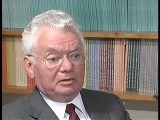You searched for: University%20of%20North%20Alabama%EF%BF%BD%EF%BF%BD%EF%BF%BD%EF%BF%BD%EF%BF%BD%EF%BF%BD%EF%BF%BD%EF%BF%BD%EF%BF%BD%EF%BF%BD%EF%BF%BD%EF%BF%BD%EF%BF%BD%EF%BF%BD%EF%BF%BD%EF%BF%BD%EF%BF%BD%EF%BF%BD%EF%BF%BD%EF%BF%BD%EF%BF%BD%EF%BF%BD%EF%BF%BD%EF%BF%BDWeChat%EF%BF%BD%EF%BF%BD%EF%BF%BDKAA2238%EF%BF%BD%EF%BF%BD%EF%BF%BDldy
<< Previous | Displaying results 201-250 of 315 for "University%20of%20North%20Alabama%EF%BF%BD%EF%BF%BD%EF%BF%BD%EF%BF%BD%EF%BF%BD%EF%BF%BD%EF%BF%BD%EF%BF%BD%EF%BF%BD%EF%BF%BD%EF%BF%BD%EF%BF%BD%EF%BF%BD%EF%BF%BD%EF%BF%BD%EF%BF%BD%EF%BF%BD%EF%BF%BD%EF%BF%BD%EF%BF%BD%EF%BF%BD%EF%BF%BD%EF%BF%BD%EF%BF%BDWeChat%EF%BF%BD%EF%BF%BD%EF%BF%BDKAA2238%EF%BF%BD%EF%BF%BD%EF%BF%BDldy" | Next >>
-
Benjamin (Beryl) Ferencz describes how he became involved in preparations for the Subsequent Nuremberg Proceedings
Oral HistoryBen was born in a small village in the Carpathian Mountains of Transylvania in Romania. When he was an infant, his family moved to the United States. Ben attended Harvard University, where he studied criminal law. Ben graduated from Harvard University Law School in 1943. He joined a US anti-aircraft artillery battalion that was training in preparation for an Allied invasion of western Europe. At the end of World War II in Europe, Ben was transferred to the war crimes investigation branch of the US Army. He…
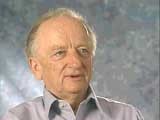
-
Heinrich Himmler
ArticleSS Chief Heinrich Himmler was chief architect of the "Final Solution." Learn more about Himmler, one of the most powerful men after Hitler in Nazi Germany.
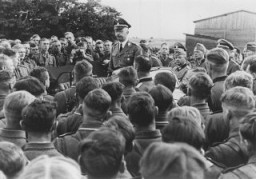
-
Dr. Johan Hendrik Weidner
ID CardJohan was the eldest of four children born to Dutch parents. His father was a minister in the Seventh-Day Adventist Church. Johan grew up in Collonges, France, where his father served as a pastor. After attending French public schools, Johan graduated from the Seventh-Day Adventist Seminary in Collonges, and went on to study law and business at the universities of Geneva and Paris. 1933-39: After completing his studies in 1935, Johan opened an import/export textile business in Paris. Business prospered…
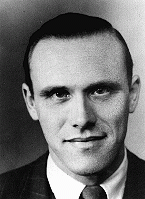
-
Walter Szczeniak
ID CardWalter was the oldest of eight children born to Polish-Catholic immigrant parents in a town near Boston, Massachusetts. The family moved back to Poland when Walter was a child, and lived on a family farm near Ostroleka in northern Poland that Walter's mother had inherited. Because his father's American nickname was "Stetson," Walter was mistakenly registered as "Charles Stetson" on his American birth certificate. 1933-39: After Walter completed secondary school, his father sent him to the University of…
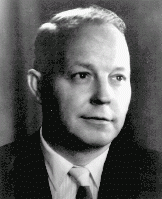
-
Kurt Pauly
ID CardKurt was born to Jewish parents in the city of Aachen, where his mother's family had resided since the 18th century. His father, though trained as a chef, worked as a butcher and also managed several stores for his father-in-law. The Paulys lived over one of those shops in the nearby suburb of Eilendorf. Kurt enjoyed large family gatherings, where he would play with his cousins, Anne and Margot Frank. 1933–39: When the Nazis came to power in 1933, the situation drastically changed for the Paulys.…
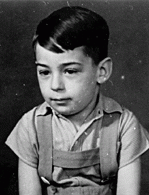
-
Raszka (Roza) Galek
ID CardRoza was born to a Jewish family in a predominately Catholic village near Warsaw. Her father owned a prosperous pearl button factory that employed some 100 people. They shared a large home with Roza's grandmother who ran a general store and bakery in the village. Roza and her three sisters attended Polish schools and took Hebrew lessons at the towns' synagogue. 1933-39: Roza's father frequently did business in Warsaw so the family moved there in 1934. They loved the city, and often went to concerts and…
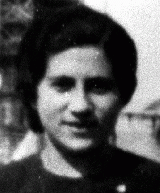
-
Claude Brunswic
ID CardClaude was one of five children born to Jewish parents in the university city of Heidelberg. His father, a physician specializing in internal medicine, had his practice on the first floor of the apartment building in which the family lived. Claude was an avid swimmer until November 1932, when local Nazi party edicts forbad Jews to use the city pool where he swam. 1933-39: In January 1933, just after Hitler became chancellor of Germany, hoodlums attacked Jewish-owned businesses in Heidelberg. They broke…
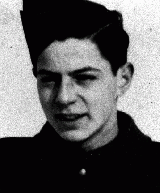
-
Feliks Bruks
ID CardFeliks was the only child of Catholic parents living in Czarnkow, a town close to the German border, some 40 miles north of Poznan. Czarnkow was situated on the Notec River. Feliks' parents owned a mineral water, soda and beer factory. They delivered their goods by horse and wagon to towns throughout the area. His parents also owned a restaurant and 120 acres of farmland. 1933-39: In 1937 Feliks entered the University of Poznan to study pharmacy. His education was cut short when the German army invaded…
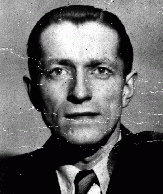
-
Jozef Rapaport
ID CardJozef was raised in a religious Jewish family. When he was a baby, his father died and his mother was left to care for him and his three older sisters. The family was poor, but Jozef was determined to have a good education. He put himself through university in Prague, and then went on to earn a Ph.D. in economics in Vienna. In 1931 he married Leah Kohl, and the couple settled in Warsaw. 1933-39: The Rapaports lived in the suburbs, and Jozef worked as a banker. His daughter, Zofia, was born in 1933. Jozef…
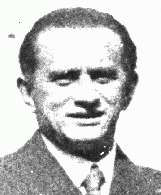
-
Nikola Mrvos
ID CardThe oldest of five children, Nikola was born in a small village in the Croatian part of Yugoslavia. Like his parents, Nikola was baptized in the Serbian Orthodox faith. After receiving his medical degree from Prague University, he married, and in 1912 moved with his wife to Serbia. During World War I he served in the Serbian army, and then settled in Novi Sad where he co-owned a medical clinic. 1933-39: Nikola and his wife raised three children in Novi Sad. Then difficult times brought on by the 1930s…
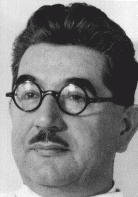
-
Jeno Muhlrad
ID CardJeno was the youngest of five children born to Jewish parents living in a suburb of Budapest. His father was a wholesale merchant who sold beer to restaurants and stores. After receiving a university diploma, Jeno became a pharmacist. He and his wife, Aranka, and their two children, Eva and Andras, shared a large old house in Ujpest with Jeno's father and other members of the extended family. 1933-39: Jeno's friends and family have helped him raise the large amount of money he needs to lease his own…
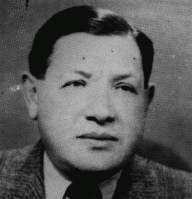
-
Judith Kalman
ID CardJudith was the only child born to a Jewish couple who lived in Hatvan, a small town 36 miles northeast of Budapest. Judith's father worked in his brother's business, marketing grains and other agricultural products purchased from local farms. When she was 3, Judith gave her first public recitation of poetry, an interest that she pursued throughout her childhood. 1933-39: Judith's family wasn't religious--they were Hungarians who happened to be Jewish, and their family was well-liked in Hatvan. But in the…
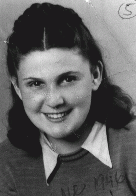
-
Janusz Piotrowski
ID CardJanusz was the eldest of four children born to Catholic parents in Plock, a town located in a rural area north of Warsaw. His father was an accountant. Janusz attended local schools, and became active in scouting. 1933-39: Janusz went to Warsaw to study civil engineering. On September 1, 1939, the Germans began bombing Warsaw. One week later, all able-bodied men who had not been mobilized were directed to retreat east. On September 17, Janusz was 90 miles from the Romanian border. That night, the Soviets…
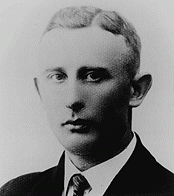
-
Shulamit Perlmutter (Charlene Schiff)
ID CardShulamit, known as Musia, was the youngest of two daughters born to a Jewish family in the town of Horochow, 50 miles northeast of Lvov. Her father was a philosophy professor who taught at the university in Lvov, and both of her parents were civic leaders in Horochow. Shulamit began her education with private tutors at the age of 4. 1933-39: In September 1939 Germany invaded Poland, and three weeks later the Soviet Union occupied eastern Poland, where Shulamit's town was located. Hordes of refugees…
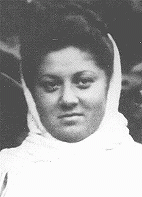
-
Vladan Popovic
ID CardVladan was the oldest of five children born to well-to-do Serbian Orthodox parents in the village of Gnjilane in the Serbian part of Yugoslavia. Vladan went to Montpelier, France, where he earned a law degree from the university. When Vladan returned to Yugoslavia, he worked as an attorney in Belgrade. He married and had one daughter. 1933-39: Vladan's wife died in 1933, and his 4-year-old daughter went to live with her maternal great-aunt. Meanwhile, Vladan had expanded his law practice and was…
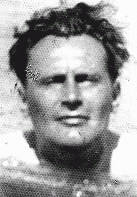
-
Pola Nussbaum
ID CardPola was born to a Jewish family in a small town [in Poland] about three miles from the German border. Her family had lived there for generations. Pola's father exported geese and other goods to Germany; her mother owned a fabric store. They lived with Pola's grandmother in a large, single-level, gray stucco house. Raczki had a small Jewish community with a Hebrew school that Pola attended. 1933-39: In 1937 Pola began secondary school in the town of Suwalki. She excelled in math, and hoped to study…
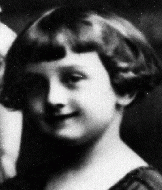
-
Zofia Rapaport
ID CardZofia was born to a Jewish family in Warsaw. Zofia's father, a self-made man who had put himself through university, was a successful banker. The Rapaports lived on a street of single-family homes with gardens. Zofia's room was decorated with yellow lacquered furniture. 1933-39: As a young child, Zofia loved to play with her dog, Chapek. Sometimes she got to go shopping with her mother downtown. Each year during the Jewish holiday of Passover her family visited Zofia's grandparents in Lvov. In late August…
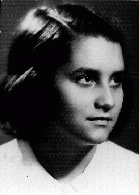
-
Fruma Lieberman Perlmutter
ID CardFruma was one of four children born to a Jewish family in the Polish village of Luczyce. Her parents owned a large farm near the village. In the early 1920s, Fruma married Simcha Perlmutter, a philosophy professor at the university in Lvov, and the couple settled in Horochow. By 1929 the couple had two daughters, Tchiya and Shulamit. 1933-39: In September 1939, as Simcha was arranging for his family to immigrate, Germany invaded Poland. Three weeks later the Soviet Union occupied eastern Poland where…
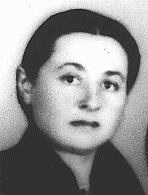
-
Fritz Alexander Rosenberg
ID CardFritz was one of three sons born to a Jewish family in the university city of Goettingen, where the Rosenbergs had lived since the 1600s. His father owned a linen factory. Fritz worked as a salesman there, and later he and his brothers inherited the business. In 1913 Fritz married Else Herz. By the early 1920s they had two sons and a daughter. 1933-39: In 1933 the Nazis came to power in Germany. A year later the Rosenbergs' factory was seized and three Nazis came to the family's home. An officer set a gun…
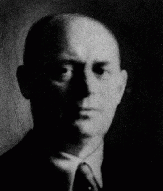
-
Rémy Dumoncel
ID CardRémy was born in a small French town to Catholic parents. In 1913, after studying law at the University of Paris, he joined the Tallandier publishing house in Paris. During World War I he served in the French army and was wounded five times. He returned to work at Tallandier after the war, and in 1919 he married Germaine Tallandier, the daughter of the owner. They had five children whom they raised as devout Catholics. 1933-39: In 1935 Rémy became the mayor of Avon, a small town about 35 miles southeast…
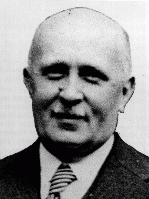
-
Claude J. Letulle
ID CardOne of five children, Claude grew up in a Catholic family in Paris. His father, a physician, owned a prosperous general medicine practice and medical laboratory. Claude's father encouraged him to study medicine and to join his practice, but Claude was more interested in becoming a lawyer. 1933-39: Claude continued his studies, and in 1936 he entered the university to study law. By mid-1939, Germany's threat against France had escalated, and on September 3, 1939, France declared war on Germany. Claude knew…
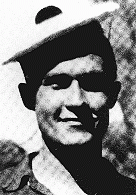
-
Eva Braun Levine
ID CardEva was the second daughter of five children born to Jewish parents. Her father dealt in real estate, and the family owned the apartment building in which they lived. The building had an elevator, a luxury for that time. Eva finished high school, and she began working for her father and studying history at a small local university. 1933-39: Nightlife for young people was lively in Lodz, and Eva often went dancing with her boyfriend, Herman. In 1939 they married. Then the Germans invaded. One day, the…
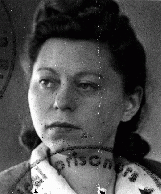
-
Heinz Rosenberg
ID CardHeinz was the youngest of three children born to a Jewish family in the German university city of Goettingen. His father owned a linen factory that had been in the family since it was founded by Heinz's grandfather. Goettingen had a small Jewish population, and only one synagogue. Heinz went to public school in the city. 1933-39: In 1933 the Nazis took power in Germany. A year later Heinz's family's factory was seized. Three SA men came to their house. An officer set a gun on the table and calmly informed…
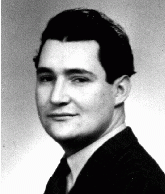
-
Ivo Herzer
ID CardIvo was an only child born to a Jewish family in the city of Zagreb. His father worked in an insurance company. Though blatant antisemitism was considered uncommon in Yugoslavia, Jews were barred from government and university positions unless they converted to Christianity. 1933-39: In Zagreb Ivo studied at a public secondary school. The curriculum was fixed and included three languages as well as religion. His school was highly selective but he enjoyed studying and did well. Though he didn't personally…
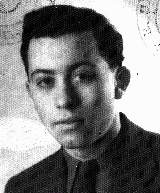
-
Martin Hans Munzer
ID CardHans was born to Jewish parents in a town in northwestern Germany. The family moved to Berlin when Hans' father obtained a post there as a history teacher in a secondary school. After graduating from university, Hans married and settled with his wife Margaret in an apartment in Berlin. In 1920 their child Wolfgang was born. Hans worked as foreign representative for a sewing notions company. 1933-39: When the Nazis won the election a few weeks ago, Hans was afraid for people like himself who are active…
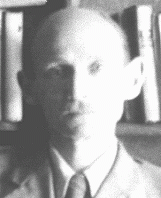
-
Monique Jackson
ID CardMonique's Jewish parents met in Paris. Her father had emigrated there from Russia to study engineering, and her mother had come from Poland as a young child. Monique's father did not have enough money to finish university, so he went to work as an upholsterer. He also shared a small business which sold his hand-tooled leather purses. 1933-39: Monique's mother was 20 when she gave birth to Monique in 1937. Two years later, Parisians were threatened by the possibility of bombing by the Germans, and French…
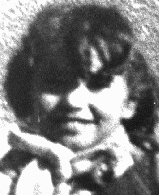
-
Fanny Judelowitz
ID CardFanny was the oldest of three girls born to a Jewish family in the Baltic seaport of Liepaja, a city with a large Jewish community in Latvia. Fanny attended a Jewish primary school there. Her parents owned and operated a shoe store and small shoe factory. 1933-39: As a young girl, Fanny's life revolved around activities with Betar, a Zionist youth movement founded in Riga in 1923. They had a group of about 25 boys and girls. They studied about Palestine and their Jewish heritage. In 1935 Fanny's mother…
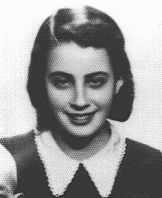
-
Tchiya Perlmutter
ID CardTchiya was the eldest of two daughters born to a Jewish family in the town of Horochow, 50 miles northeast of Lvov. Her father was a philosophy professor who taught at the university in Lvov, and both of her parents were civic leaders in Horochow. 1933-39: In September 1939 Germany invaded western Poland, and three weeks later the Soviet Union occupied eastern Poland [as a result of the German-Soviet Pact], where Horochow was located. Hordes of refugees fleeing the Germans streamed through the town.…
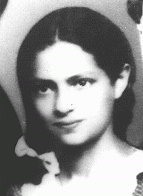
-
Nenad Dusan Popovic
ID CardNenad was the youngest of nine children born to Serbian Orthodox landowners in the eastern Croatian part of Yugoslavia. During World War I the Popovic family was evacuated to Vukovar by the Austro-Hungarian army, which was then at war with Serbia. In 1928 Nenad moved to Belgrade, where he attended Belgrade University, graduating with a law degree in 1932. 1933-39: Nenad's specialty was law related to economics and he found a job in the economic research department of the Yugoslav central bank in Belgrade.…
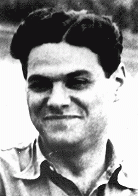
-
Klara Mintzberg
ID CardKlara grew up in Rzeszow, a Polish city with a population of approximately 30,000. The Mintzbergs were observant Jews. Klara's mother supported the family by running their fabric store. Her father was an ardent Zionist. He dreamed of immigrating to Palestine and encouraged Klara to join a Zionist youth group. 1933-39: After finishing secondary school, Klara was elected to serve on the board of directors of Poland's Ha-No'ar Ha-Ziyoni youth movement; she was the only woman on the board. She studied…
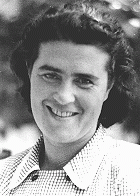
-
Irmgard Rosenberg
ID CardIrmgard was one of three children born to a Jewish family in the famous university city of Goettingen. The city had a small Jewish population, and only one synagogue. Irmgard's father, with his two brothers, owned a linen factory that had been founded by Irmgard's grandfather. Irmgard attended public school in the city. 1933-39: With the onset of the Depression in the 1930s, the family's factory went into decline. When the Nazis came to power in 1933, they confiscated the Rosenbergs' factory. Later, the…
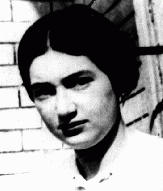
-
Manon Marliac
ID CardManon's Christian parents lived in Paris. Roger Marliac, her father, originally from a wealthy family, supported his family by selling produce at small marketplaces. Margarit, her mother (called Maguy by her friends), had a university degree in science. The family lived in a large apartment in a fashionable neighborhood near the Eiffel Tower. 1933-39: Manon, the Marliacs' second child, was born in 1937. She was 2 years old when her father was drafted into the French army as the country mobilized for a…
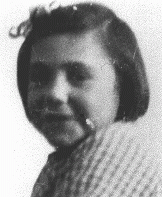
-
Aranka Ecksdein Muhlrad
ID CardAranka was the youngest of 10 children born to Jewish parents living in the highlands of Slovakia. While visiting Budapest to attend her sister's marriage, she was introduced to Jeno Muhlrad, a pharmacist. They were married and the couple moved in with Jeno's father and sisters who lived in Ujpest, a suburb of Budapest. Aranka had two children--Eva, born in 1924, and Andras, born six years later. 1933-39: Aranka's husband has leased his own pharmacy in downtown Ujpest so they can finally afford to move…
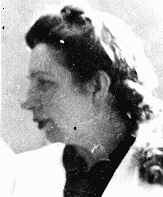
-
David Klebanov
ID CardBorn in the town of Volkovysk when it was part of Russia, David was the son of middle-class Jewish parents. When the family's life was disrupted by World War I and the Russian Revolution of 1917, they moved to Borisov and Kiev before finally settling in the Polish city of Bialystok. After completing secondary school in 1925, David studied medicine at Stefan Bathory University in Vilna. 1933-39: After medical school David served one year in the Polish army. Then he practiced obstetrics at a beautiful…
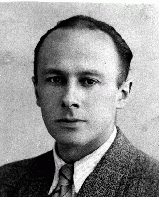
-
Laura Litwak
ID CardLaura was the second of five children born to religious Jewish parents in the industrial city of Lvov. She was often called affectionately by her nickname, Lorka. Coming from an educated family living in a multi-ethnic part of Poland, she grew up speaking Polish, Russian, German and Yiddish. As a young woman, she earned a humanities degree from St. Nicholas University in Lvov. 1933-39: In April 1935 Laura became Mrs. Daniel Schwarzwald. Her husband was a successful lumber exporter, and they lived in a…
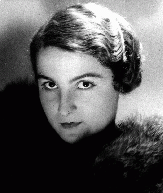
-
Frederic Bernard
ID CardFrederic was born to a Jewish family in Czernowitz (Chernovtsy). His father was head clerk in a lawyer's office and his mother was a pianist. Frederic's parents were active in Czernowitz's sizable Jewish community. In 1930 Frederic began medical studies at the German University in Prague, Czechoslovakia. 1933-39: Frederic left Prague in 1933. He went to France and then Italy to finish his studies and graduated in 1936. He wanted to leave Europe to escape Hitler and tried to do so by applying to the…
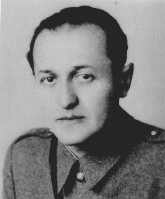
-
Ion Butnaru
ID CardIon was born to Jewish parents in a small, ethnically diverse city in east-central Moldavia [in Romania], a region known for its wine. Husi had a sizable and active Jewish population, which organized literary and artistic festivals and ran a local library. Ion's father was a wine maker and his side of the family had owned vineyards for at least three generations. 1933-39: Ion enjoyed helping his father in the family vineyards. He also did volunteer work at his local Jewish library. When he was 17, his…
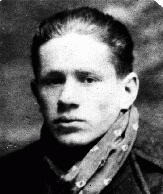
-
Frederick Fleszar
ID CardFrederick was the oldest of two sons born to Polish immigrants in Syracuse, New York. In 1922 Frederick's father, who was a musician, moved the family back to Poland where they settled in Poznan. There Frederick started public school and was accepted to the boys section of the prestigious Poznan Cathedral Choir. 1933-39: In 1933, at age 17, Frederick graduated from secondary school and enrolled in medical school at the university at Poznan. He sang with the choir for the last time the day he graduated…
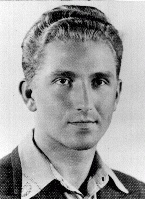
-
Robert Skutecky
ID CardRobert was the second of three children born to Jewish parents in the Moravian capital of Brno, where his father ran a shipping company. Between 1909 and 1920 Robert lived with his widowed grandmother, who resided nearby. He completed secondary school in 1922, and then attended an international trade school in Vienna. Robert earned a doctorate in law from Charles University in Prague in 1930. 1933-39: After apprenticing as a lawyer for five years, Robert finally opened his own practice in Brno in January…

-
Brandenburg T4 Facility
ArticleBrandenburg was one of six killing centers the Nazis established to murder patients with disabilities under the so-called "euthanasia" program.
-
Refugees Today
ArticleAs of mid-2022, there were about 27 million refugees. Learn more about these refugees, the violence they face, and the global impact of the refugee crisis.
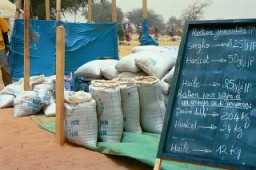
-
Martin Niemöller: "First they came for..."
ArticleLearn about the origins and legacy of Pastor Martin Niemöller's famous postwar words, “First they came for the socialists, and I did not speak out…”
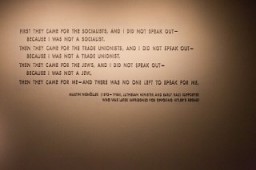
-
Estelle Laughlin
ArticleExplore Estelle Laughlin’s biography and learn about her experiences during the Warsaw ghetto uprising.
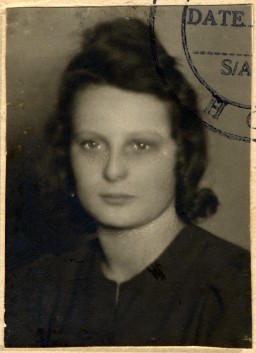
-
Jozef Tiso
ArticleJozef Tiso was a Slovak politician and a Roman Catholic priest. From 1939 to 1945, he was the president of the Slovak Republic, one of Nazi Germany’s allies.
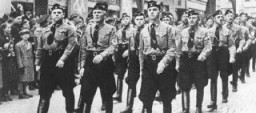
-
Léon Degrelle
ArticleLéon Degrelle was an extreme right-wing Belgian politician and Nazi collaborator. After the war, he continued to spread pro-Nazi propaganda for decades. Learn more.
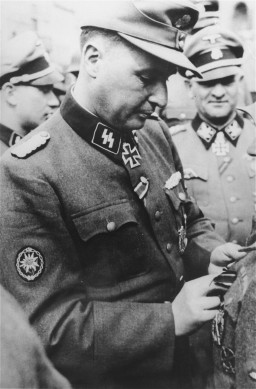
-
Thomas Buergenthal describes the impact of the Nuremberg trials on the development of international law
Oral HistoryJudge Thomas Buergenthal was one of the youngest survivors of the Auschwitz and Sachsenhausen concentration camps. He immigrated to the United States at the age of 17. Judge Buergenthal devoted his life to international and human rights law. He served as chairman of the United States Holocaust Memorial Museum’s Committee on Conscience; was named the Lobingier Professor of Comparative Law and Jurisprudence at the George Washington University Law School; and served for a decade as the American judge at…
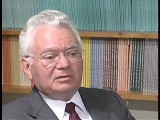
-
Thomas Buergenthal reflects on the value of truth commissions
Oral HistoryJudge Thomas Buergenthal was one of the youngest survivors of the Auschwitz and Sachsenhausen concentration camps. He immigrated to the United States at the age of 17. Judge Buergenthal devoted his life to international and human rights law. He served as chairman of the United States Holocaust Memorial Museum’s Committee on Conscience; was named the Lobingier Professor of Comparative Law and Jurisprudence at the George Washington University Law School; and served for a decade as the American judge at…
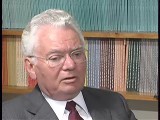
-
Thomas Buergenthal describes the significance of the Nuremberg trials to him both personally and as a lawyer and judge
Oral HistoryJudge Thomas Buergenthal was one of the youngest survivors of the Auschwitz and Sachsenhausen concentration camps. He immigrated to the United States at the age of 17. Judge Buergenthal devoted his life to international and human rights law. He served as chairman of the United States Holocaust Memorial Museum’s Committee on Conscience; was named the Lobingier Professor of Comparative Law and Jurisprudence at the George Washington University Law School; and served for a decade as the American judge at…
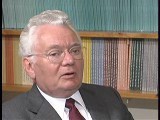
-
Thomas Buergenthal discusses quote from Abel Herzberg
Oral History"There were not six million Jews murdered; there was one murder, six million times."Holocaust survivor Abel Herzberg Judge Thomas Buergenthal was one of the youngest survivors of the Auschwitz and Sachsenhausen concentration camps. He immigrated to the United States at the age of 17. Judge Buergenthal devoted his life to international and human rights law. He served as chairman of the United States Holocaust Memorial Museum’s Committee on Conscience; was named the Lobingier Professor of Comparative Law…
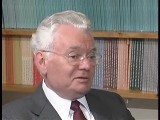
-
Thomas Buergenthal describes international tribunals
Oral HistoryJudge Thomas Buergenthal was one of the youngest survivors of the Auschwitz and Sachsenhausen concentration camps. He immigrated to the United States at the age of 17. Judge Buergenthal devoted his life to international and human rights law. He served as chairman of the United States Holocaust Memorial Museum’s Committee on Conscience; was named the Lobingier Professor of Comparative Law and Jurisprudence at the George Washington University Law School; and served for a decade as the American judge at…
